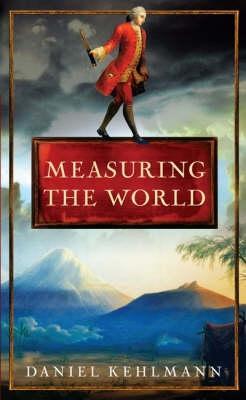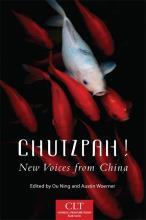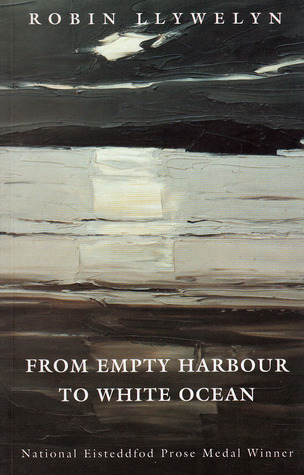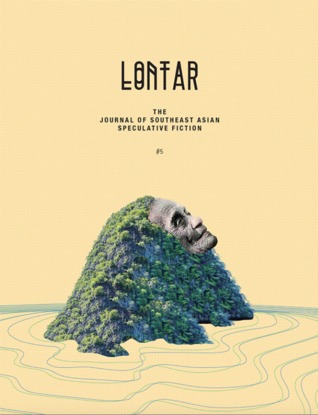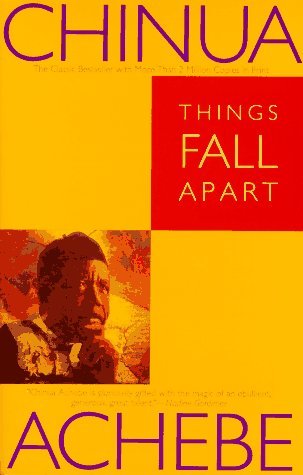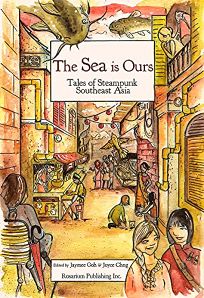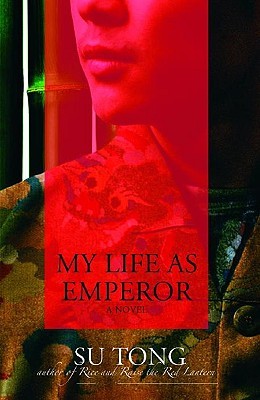For my year in review post, I decided to split my selections into award categories. So here are my selections, published both before and during 2015. They are in no particular order within each category, and links go to my reviews (and the original story, if online). If there is no link, my review is probably still in the works.
Enjoy!
The Devourers by Indra Das
A Planet for Rent by Yoss, translated by David Frye
Tantrics of Old by Krishnarjun Bhattacharya
Like Water for Chocolate by Laura Esquivel, translated by Carol Christensen and Thomas Christensen
1Q84 by Haruki Murakami, translated by Jay Rubin and Philip Gabriel
Cult of Chaos by Shweta Taneja
"Thirst" and "The Woman Who Thought She Was a Planet" by Vandana Singh from The Woman Who Thought She Was a Planet and Other Stories
"The White Mask" by Zedeck Siew from Cyberpunk: Malaysia
"A Village of Cold Hearths" by Sheng Keyi, translated by Brendan O'Kane from Chutzpah!
“Retracing Your Steps” by Zhu Yue, translated by Nick Admussen from Chutzpah!
“No Man Is” by Ng Yi-Sheng from LONTAR volume 5
“Siren” by Amanda Lee Koe from LONTAR volume 5
“The Spurned Bride’s Tears, Centuries Old, in the Rain” by Gord Sellar from LONTAR volume 5
"Psychopomp" by Indrapramit (Indra) Das
Dry Season by Gabriela Babnik, translated by Rawley Grau
The Circle of Karma by Kunzang Choden
The Garlic Ballads by Mo Yan, translated by Howard Goldblatt
The King's Harvest by Chetan Raj Shreshta
I am Istanbul by Buket Uzuner, translated by Kenneth J. Dakan
“The Failure” by Aydos Amantay, translated by Canaan Morse from Chutzpah!
“Dust” by Chen Xue, translated by Howard Goldblatt from Chutzpah!
"Blue Hawaii" by Rizia Rahman, translated by Niaz Zaman and Musharrat Hossain from Caged in Paradise
"Mother Fatema Weeps" by Rizia Rahman, translated by Shirin Hasanat Islam from Caged in Paradise
"Caged in Paradise" by Rizia Rahman, translated by Niaz Zaman from Caged in Paradise
"The Balloonwala" by Anirban Bose from Mice in Men
The Black Box by Alek Popov
Dangerlok by Eunice de Souza
The Patience Stone by Atiq Rahimi
Nueve Reinas by Fabian Bielinsky
Aguner Poroshmoni by Humayun Ahmed
The Lives of Others by Florian Henckel von Donnersmarck
English Vinglish by Gauri Shinde
Dil Chahta Hai by Farhan Akhtar
Kadambari by Suman Ghosh
Castaway on the Moon by Lee Hae-jun
The Orphanage by J. A. Bayona
My goal for next year is to read more speculative short stories online. You might see an occasional short review on here. :)
Thanks for reading and Happy New Year!
Enjoy!
Best Speculative Fiction (Long Form)
The Devourers by Indra Das
A Planet for Rent by Yoss, translated by David Frye
Tantrics of Old by Krishnarjun Bhattacharya
Like Water for Chocolate by Laura Esquivel, translated by Carol Christensen and Thomas Christensen
1Q84 by Haruki Murakami, translated by Jay Rubin and Philip Gabriel
Cult of Chaos by Shweta Taneja
Best Speculative Fiction (Short Form)
"The White Mask" by Zedeck Siew from Cyberpunk: Malaysia
"A Village of Cold Hearths" by Sheng Keyi, translated by Brendan O'Kane from Chutzpah!
“Retracing Your Steps” by Zhu Yue, translated by Nick Admussen from Chutzpah!
“No Man Is” by Ng Yi-Sheng from LONTAR volume 5
“Siren” by Amanda Lee Koe from LONTAR volume 5
“The Spurned Bride’s Tears, Centuries Old, in the Rain” by Gord Sellar from LONTAR volume 5
"Psychopomp" by Indrapramit (Indra) Das
Best Literary Fiction (Long Form)
Dry Season by Gabriela Babnik, translated by Rawley Grau
The Circle of Karma by Kunzang Choden
The Garlic Ballads by Mo Yan, translated by Howard Goldblatt
The King's Harvest by Chetan Raj Shreshta
I am Istanbul by Buket Uzuner, translated by Kenneth J. Dakan
Best Literary Fiction (Short Form)
“Dust” by Chen Xue, translated by Howard Goldblatt from Chutzpah!
"Blue Hawaii" by Rizia Rahman, translated by Niaz Zaman and Musharrat Hossain from Caged in Paradise
"Mother Fatema Weeps" by Rizia Rahman, translated by Shirin Hasanat Islam from Caged in Paradise
"Caged in Paradise" by Rizia Rahman, translated by Niaz Zaman from Caged in Paradise
"The Balloonwala" by Anirban Bose from Mice in Men
Best Humor and Satire
The Black Box by Alek Popov
Dangerlok by Eunice de Souza
Best International Films
The Patience Stone by Atiq Rahimi
Nueve Reinas by Fabian Bielinsky
Aguner Poroshmoni by Humayun Ahmed
The Lives of Others by Florian Henckel von Donnersmarck
English Vinglish by Gauri Shinde
Dil Chahta Hai by Farhan Akhtar
Kadambari by Suman Ghosh
Castaway on the Moon by Lee Hae-jun
The Orphanage by J. A. Bayona
My goal for next year is to read more speculative short stories online. You might see an occasional short review on here. :)
Thanks for reading and Happy New Year!
Want to see more reviews of world literature and film? Follow me on Twitter or like The Globally Curious's facebook page!




.jpg)



